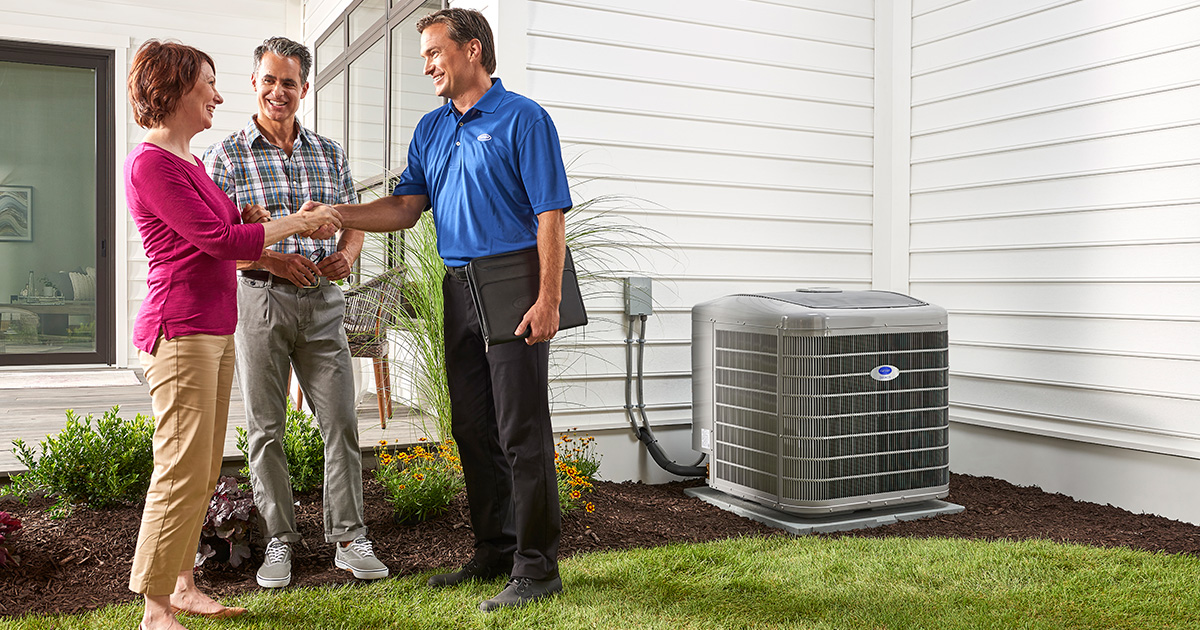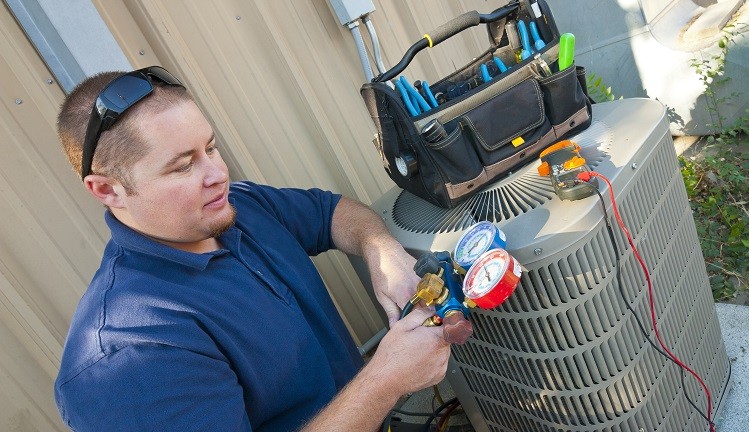An Extensive Check Out HVAC Solutions and Their Effect On Power Efficiency and Expense Savings
With technological improvements like clever thermostats and high-efficiency elements, the possibility for enhancing system efficiency is large. As we explore the intricate relationship in between HVAC systems and functional costs, including the change towards environmentally friendly choices, the concern arises: just how can these methods be successfully executed to maximize both financial and environmental advantages?

Relevance of HVAC Systems
HVAC systems are a vital component of modern-day buildings, playing a vital function in maintaining comfortable and healthy indoor settings. These systems, incorporating air, air flow, and heating conditioning, are crucial for managing temperature level, humidity, and air high quality, consequently ensuring the wellness of owners. Reliable HVAC systems add substantially to creating an ideal indoor climate, which is critical for both domestic and business rooms.
In business structures, HVAC systems are essential to giving a risk-free and efficient setting. By controlling indoor climate conditions, these systems aid stop the growth of mold and the spread of air-borne contaminants, hence safeguarding the health of customers and workers. In addition, in domestic setups, a/c systems improve living conditions by offering constant thermal comfort and boosting indoor air high quality, which is crucial for overall health and wellness.
Furthermore, the layout and maintenance of cooling and heating systems have a straight influence on energy usage and functional costs. Properly made and maintained systems can significantly reduce power use, leading to reduced energy costs and a smaller carbon footprint. The effectiveness of these systems therefore plays a critical duty in promoting sustainability and energy conservation within buildings, highlighting their relevance in the modern architectural landscape.
Advancements in Cooling And Heating Technology
Development in heating and cooling technology is changing the means structures manage indoor environments, ushering in a brand-new age of efficiency and control. Current advancements have actually concentrated on maximizing power usage while enhancing user comfort. One significant advancement is the integration of smart thermostats, which make use of expert system to discover occupancy patterns and change temperatures accordingly, lowering unneeded energy use.
Variable Refrigerant Flow (VRF) systems represent another substantial jump ahead. These systems permit accurate temperature control in various areas of a building, boosting comfort and minimizing power waste. VRF modern technology is especially useful for large industrial rooms, offering adaptability and scalability.
Furthermore, the advent of Net of Points (IoT) devices has actually transformed heating and cooling systems into interconnected networks efficient in real-time data collection and evaluation. This connectivity makes it possible for anticipating maintenance, making certain systems operate at peak efficiency and lessening unexpected downtime.
Additionally, improvements in materials and design, such as making use of high-efficiency coils and compressors, have boosted general system performance - Heating Contractor. The adoption of eco-friendly refrigerants additionally underscores the market's dedication to sustainability
These technological advancements are critical in reducing functional prices and ecological impact, establishing new criteria for building environment management.
Cooling And Heating Maintenance and Efficiency
Making certain ideal efficiency of cooling and heating systems extends beyond technical developments; it also depends upon reliable maintenance methods. Regular upkeep is essential for sustaining performance, decreasing energy intake, and extending the life expectancy of a/c systems. The primary objective is to ensure that all components work at their peak potential, thus lessening power waste and maintaining consistent indoor comfort degrees.
Routine maintenance tasks, such as cleansing or replacing air filters, inspecting refrigerant levels, and evaluating ductwork for leaks, are essential for avoiding unnecessary pressure on the system. Stopped up or dirty filters can obstruct airflow, causing the system to function more challenging and eat even more energy. Furthermore, inadequate refrigerant levels can decrease cooling efficiency, causing greater operational prices.
In addition, regular examinations by certified experts can identify potential concerns before they escalate into expensive repairs this hyperlink or system failings. These assessments frequently consist of inspecting electric connections, calibrating thermostats, and making certain the general integrity of the cooling and heating system. By resolving minor troubles early, services and homeowners can prevent unanticipated failures and enhance energy efficiency.
Cost-Effective Cooling And Heating Solutions
For those aiming to get the most out of their air, home heating, and ventilation conditioning systems without damaging the bank, discovering cost-effective a/c services can make a considerable distinction. One prompt step is to purchase programmable thermostats, which enable individuals to establish certain temperature levels for various times of the day, optimizing power usage and decreasing unnecessary usage. By automating temperature modifications, homeowners can attain significant cost savings on power bills.
Normal upkeep is another crucial part of cost-effective a/c administration. Ensuring that filters are cleansed or replaced regularly, ductwork is secured, and devices are serviced by experts can protect against costly repairs and boost system durability. Preventative upkeep not only maintains system performance however likewise helps in avoiding unexpected malfunctions that can cause expensive emergency situation repair services.
In addition, retrofitting existing systems with energy-efficient elements, such as variable rate electric motors or high-efficiency compressors, can be a prudent financial investment. These upgrades improve functional effectiveness, decrease power use, and can typically be executed at a fraction of the price of a complete system replacement.
Environmental Impact Reduction
Decreasing the environmental effect of HVAC systems is essential in today's quest of sustainable living. Heating and cooling systems are substantial factors to energy intake, accounting for nearly 40% of energy use in business buildings.
Technical advancements in a/c layout and procedure, including the integration of wise thermostats and energy-efficient warm pumps, are critical in minimizing carbon impacts. These innovations enable enhanced energy use, lessening waste and enhancing general system performance. Additionally, adopting routine upkeep methods makes sure a/c systems operate at peak performance, additional curtailing unneeded energy usage.
Furthermore, the usage of eco-friendly refrigerants is crucial, as typical refrigerants, like CFCs and HCFCs, have actually been terminated because of their ozone-depleting properties. Modern options, such as hydrofluoroolefins (HFOs), offer lowered environmental risks, aligning with global ecological protocols. her explanation By accepting these lasting methods, a/c services can play a transformative function in decreasing environmental effects, advertising energy efficiency, and cultivating a much more lasting future.
Final Thought

Moreover, the style and maintenance you can try here of Cooling and heating systems have a straight impact on energy consumption and operational expenses. Regular upkeep is vital for sustaining effectiveness, decreasing power consumption, and extending the life period of HVAC systems. Heating and cooling systems are considerable factors to energy consumption, accounting for virtually 40% of power use in commercial buildings. Furthermore, embracing regular upkeep methods guarantees Cooling and heating systems operate at peak performance, additional curtailing unnecessary energy usage.
The shift to ecologically friendly HVAC systems additionally lowers operational prices and advertises sustainability. (Heating Contractor)